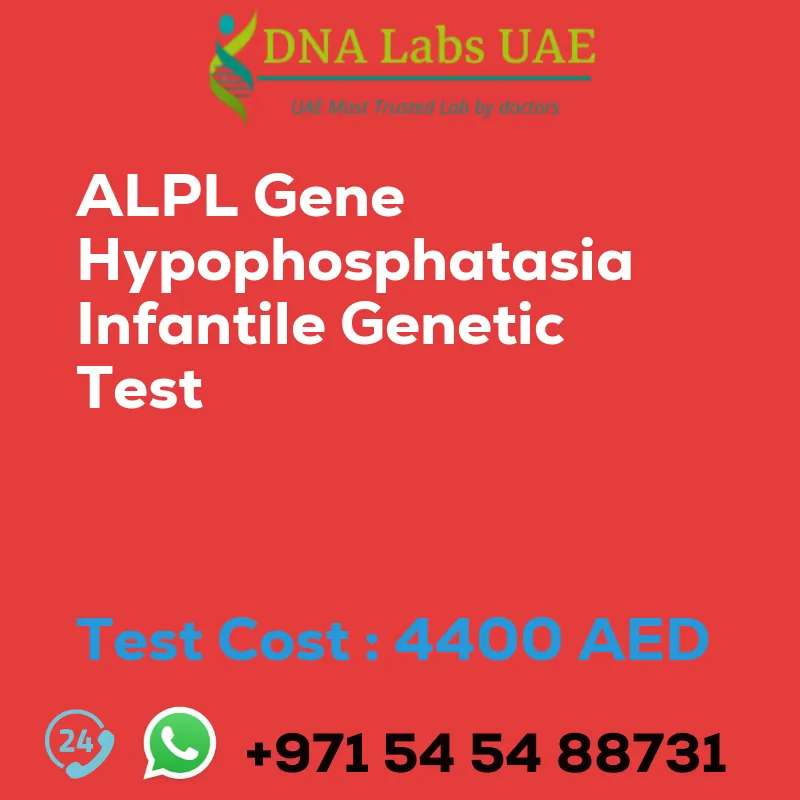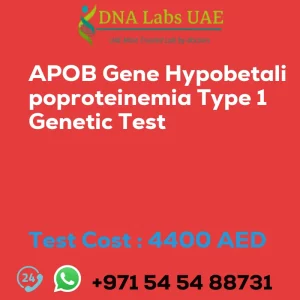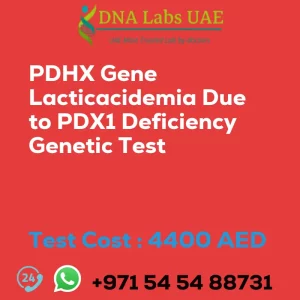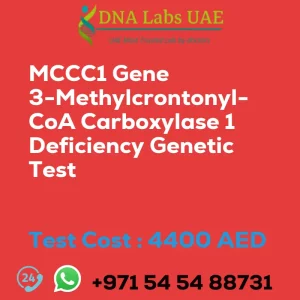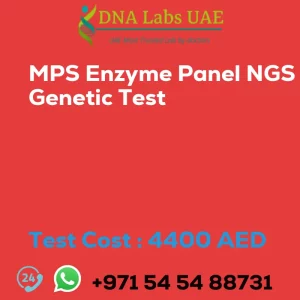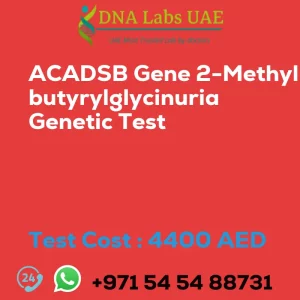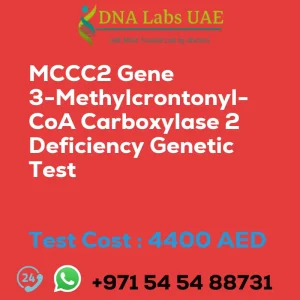ALPL Gene Hypophosphatasia infantile Genetic Test Price 4400 AED
Securing Your Child’s Well-being: An Overview of the ALPL Gene Hypophosphatasia Infantile Genetic Test in the UAE
Starting a family is a thrilling journey, but for some couples in the UAE, there might be worries about potential genetic disorders that could impact their offspring. Hypophosphatasia (HPP) is an uncommon hereditary condition that affects bone growth. The ALPL Gene Hypophosphatasia Infantile Genetic Test can be an essential resource for couples with a familial history or concerns about HPP, providing crucial information about potential risks for their child.
Deciphering Hypophosphatasia (HPP):
HPP is a collection of genetic conditions that hinder the body’s capacity to effectively utilize phosphorus, a mineral vital for robust bones and teeth. This can result in fragile bones, bone fractures, and inhibited growth. The intensity of HPP fluctuates depending on the particular genetic mutation involved. Infantile HPP is the most intense form, typically manifesting symptoms within the first few months of life.
What is the ALPL Gene Hypophosphatasia Infantile Genetic Test?
Our genes carry the blueprint for constructing our bodies. The ALPL gene encodes instructions for an enzyme crucial for proper phosphorus metabolism. Mutations in this gene can lead to HPP. The ALPL Gene Hypophosphatasia Infantile Genetic Test scrutinizes this specific gene to identify potential mutations that could heighten the risk of infantile HPP in your child.
Who Should Opt for the ALPL Gene Hypophosphatasia Infantile Genetic Test?
This test is especially beneficial for couples who have:
A familial history of HPP, particularly infantile HPP. A previous child diagnosed with HPP. Worries about the potential risk of HPP due to ethnicity or ancestry (certain populations have a higher prevalence of specific HPP-inducing mutations).
Advantages of the ALPL Gene Hypophosphatasia Infantile Genetic Test:
Informed Family Planning: Being aware of your carrier status for HPP-inducing mutations enables informed decisions about family planning. Genetic counseling can assist you in understanding the risk of transmitting the condition to your children and explore potential alternatives like prenatal testing or preimplantation genetic diagnosis (PGD). Prompt Diagnosis and Intervention: If a prenatal test detects HPP in your baby, early diagnosis allows for immediate medical intervention, potentially enhancing their long-term health outcomes. Lessened Anxiety: Being aware of your carrier status can reduce anxiety and offer peace of mind for couples planning a family.
What to Anticipate During the Test?
The ALPL Gene Hypophosphatasia Infantile Genetic Test typically involves a straightforward blood draw from each partner. There’s usually no special preparation necessary.
Interpreting the Results and Future Actions:
A genetic counselor will decode your test results and explain their implications.
Negative Result: This signifies neither partner carries a mutation associated with infantile HPP in their genes. However, it’s crucial to remember that this test doesn’t exclude all potential genetic causes of HPP. Positive Result: If a mutation is detected, the counselor will explain the heightened risk of having a child with infantile HPP. They can also discuss options like prenatal testing or PGD, if applicable.
Genetic Counseling is Essential:
Consulting a genetic counselor before and after the test is strongly advised. The counselor can elucidate the test in detail, address any concerns you may have, and guide you through the implications of the results for your specific situation.
Planning for a Healthy Future:
If you’re planning a family in the UAE and have worries about HPP, discussing the ALPL Gene Hypophosphatasia Infantile Genetic Test with your doctor can be a vital step towards informed family planning and a healthier future for your children.
Components:
ALPL Gene Hypophosphatasia infantile Genetic Test
Price:
4400.0 AED
Sample Condition:
Blood or Extracted DNA or One drop Blood on FTA Card
Report Delivery:
3 to 4 Weeks
Method:
NGS Technology
Test Type:
Metabolic Disorders
Doctor:
General Physician
Test Department:
Genetics
Pre Test Information:
Clinical History of Patient who is going for ALPL Gene Hypophosphatasia, infantile NGS Genetic DNA Test. A Genetic Counselling session to draw a pedigree chart of family members affected with Hypophosphatasia, infantile.
Test Details:
The ALPL gene is responsible for encoding an enzyme called alkaline phosphatase, which plays a crucial role in bone mineralization. Mutations in the ALPL gene can lead to a rare genetic disorder called hypophosphatasia. Hypophosphatasia is characterized by defective bone mineralization, which can result in various skeletal abnormalities and impairments in bone growth. There are different forms of hypophosphatasia, with the infantile form being the most severe and life-threatening.
NGS (Next-Generation Sequencing) genetic testing is a technique used to analyze the DNA sequence of an individual’s genes. In the context of hypophosphatasia, NGS genetic testing can identify mutations in the ALPL gene, allowing for a definitive diagnosis of the condition. By identifying the specific mutations in the ALPL gene, NGS genetic testing can help determine the prognosis, guide treatment decisions, and provide information about the risk of passing the condition to future generations. This information can be crucial for managing the condition and providing appropriate medical care for individuals with hypophosphatasia.
| Test Name | ALPL Gene Hypophosphatasia infantile Genetic Test |
|---|---|
| Components | |
| Price | 4400.0 AED |
| Sample Condition | Blood or Extracted DNA or One drop Blood on FTA Card |
| Report Delivery | 3 to 4 Weeks |
| Method | NGS Technology |
| Test type | Metabolic Disorders |
| Doctor | General Physician |
| Test Department: | Genetics |
| Pre Test Information | Clinical History of Patient who is going for ALPL Gene Hypophosphatasia, infantile NGS Genetic DNA Test A Genetic Counselling session to draw a pedigree chart of family members affected with Hypophosphatasia, infantile |
| Test Details | The ALPL gene is responsible for encoding an enzyme called alkaline phosphatase, which plays a crucial role in bone mineralization. Mutations in the ALPL gene can lead to a rare genetic disorder called hypophosphatasia.
Hypophosphatasia is characterized by defective bone mineralization, which can result in various skeletal abnormalities and impairments in bone growth. There are different forms of hypophosphatasia, with the infantile form being the most severe and life-threatening. NGS (Next-Generation Sequencing) genetic testing is a technique used to analyze the DNA sequence of an individual’s genes. In the context of hypophosphatasia, NGS genetic testing can identify mutations in the ALPL gene, allowing for a definitive diagnosis of the condition. By identifying the specific mutations in the ALPL gene, NGS genetic testing can help determine the prognosis, guide treatment decisions, and provide information about the risk of passing the condition to future generations. This information can be crucial for managing the condition and providing appropriate medical care for individuals with hypophosphatasia. |

